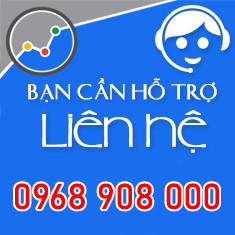-
08-08-2011, 05:33 AM #1
 Silver member
Silver member
- Ngày tham gia
- Nov 2017
- Bài viết
- 0
Several major foreign investment funds are set to grapple with the question of whether they should reinvest in the Vietnamese market or bid goodbye.
The issue is expected to come up next year at the biennial investor meeting of the Vietnam Enterprise Investments Ltd managed by UK-listed Dragon Capital. The question was raised at the 2010 meeting but a decision to continue was made at the last minute.
Two others, the Vietnam Opportunity Fund managed by VinaCapital and the Prudential Balanced Fund, will be subject to a vote in 2013.
Local fund management company Saigon Investment Capital says 2012 will see a number of funds - with around VND3.4 trillion (US$166 million) worth investments at current prices - reach the end of their tenure.
The rush will intensify a year later while the figure could top VND63 trillion ($3 billion) by 2015.
Louis Nguyen, Chairman of Saigon Asset Management, fears foreign investors are likely to take their money out if Viet Nam's stock market continues to remain depressed.
Controlling inflation and lowering lending interest rates to facilitate businesses' operations are urgent tasks for the country if it wants to revive the stock market, he says.
Dominic Scriven, Dragon Capital CEO, concurs, saying the market will come under further pressure if the funds leave the market without new capital flowing in.
To attract portfolio investment, various measures are required - like speeding up equitisation of State-owned enterprises, listing them, and improving disclosures.
Industry insiders say foreign investors capable of holding major stakes in SOE-turned-joint-stock companies will help persuade foreign funds since they look to have a say in the management.
Four large SOEs, the Viet Nam Steel Corporation, Petrolimex, Mien Trung Coporation, and the Mekong Housing Bank were equitised this year, offering a small portion of their shares. In its IPO, Petrolimex offered investors only 2.56 per cent of its total charter capital, and none to foreign investors because national energy security was involved.
Its chairman also said his company was financially and technologically capable of growing without foreign investors.
Ryu Sang Ho, General Director of the Korea Investment and Securities Company (KIS) which owns 49 per cent of KIS Vietnam, says Korean investors see long-term potential in the Vietnamese stock market.
But the Government should adopt policies to create a better investment environment to re-attract capital, he says, noting that Vietnamese investors have themselves turned to other asset classes like gold and bank deposits.
"Our investors are also worried about the high interest and inflation rates and they need transparent information and business growth plans." He adds that if the problems are addressed, the market will become attractive to investors.
VinaCapital CEO Don Lam sees good opportunities in the depressed context.
"We will continue to invest in domestic enterprises in areas like food and beverage, healthcare, consumer goods, property, and building materials," he says, adding that once the economy becomes stable, VinaCapital will raise more foreign capital.
Masafumi Tsunoda, Deputy General Director of the Japan Asia Group's fund management firm United Investment, reveals that Japanese investors are waiting for signs of market recovery to invest in Vietnamese stocks.View more random threads:
- S74: Notice of record date for dividend payment
- NBC: Notice of record date for cash dividend payment
- BXD: Result of sale of Treasury stock
- Alarm bell about to ring on many securities companies
- TET: Notice of record date for Dividend payment in cash
- HNX notice: Power and Transport Joint Stock Company withdraws listing application
- Sluggish trading sends shares down
- Deposit interest rates unexpectedly rose
- Local brokerage promotes firms for foreign investors
- Kinh Bac Urban City set for $56m bond issuance
Các Chủ đề tương tự
-
Foreign funds pull rug out from under market
Bởi imported_phamhoangvu88 trong diễn đàn STOCKs TRADING IN HNXTrả lời: 0Bài viết cuối: 29-05-2012, 09:04 AM -
Foreign investments fall in Vietnam stock market
Bởi trong diễn đàn STOCKs LISTED IN HoSETrả lời: 0Bài viết cuối: 15-09-2011, 10:16 AM -
More foreign funds
Bởi imported_virus trong diễn đàn STOCKs LISTED IN HoSETrả lời: 0Bài viết cuối: 16-08-2010, 03:55 AM -
Foreign stock investments regain head of steam
Bởi trong diễn đàn STOCKs TRADING IN HNXTrả lời: 0Bài viết cuối: 19-07-2010, 11:28 AM -
It’s time for real estate investments: Foreign investors
Bởi trong diễn đàn STOCKs LISTED IN HoSETrả lời: 0Bài viết cuối: 21-02-2009, 09:20 AM



 Trả lời kèm Trích dẫn
Trả lời kèm Trích dẫn





Bất chấp những lầm tưởng phổ quát, hồ hết những người có âm đạo đều khó lên đỉnh khi bị kích thích âm đạo. Tuy nhiên, điều đó không có tức là nó không thể vui được! Việc thâm nhập vào âm đạo bằng...
Phái đẹp giải tỏa bằng việc kích...